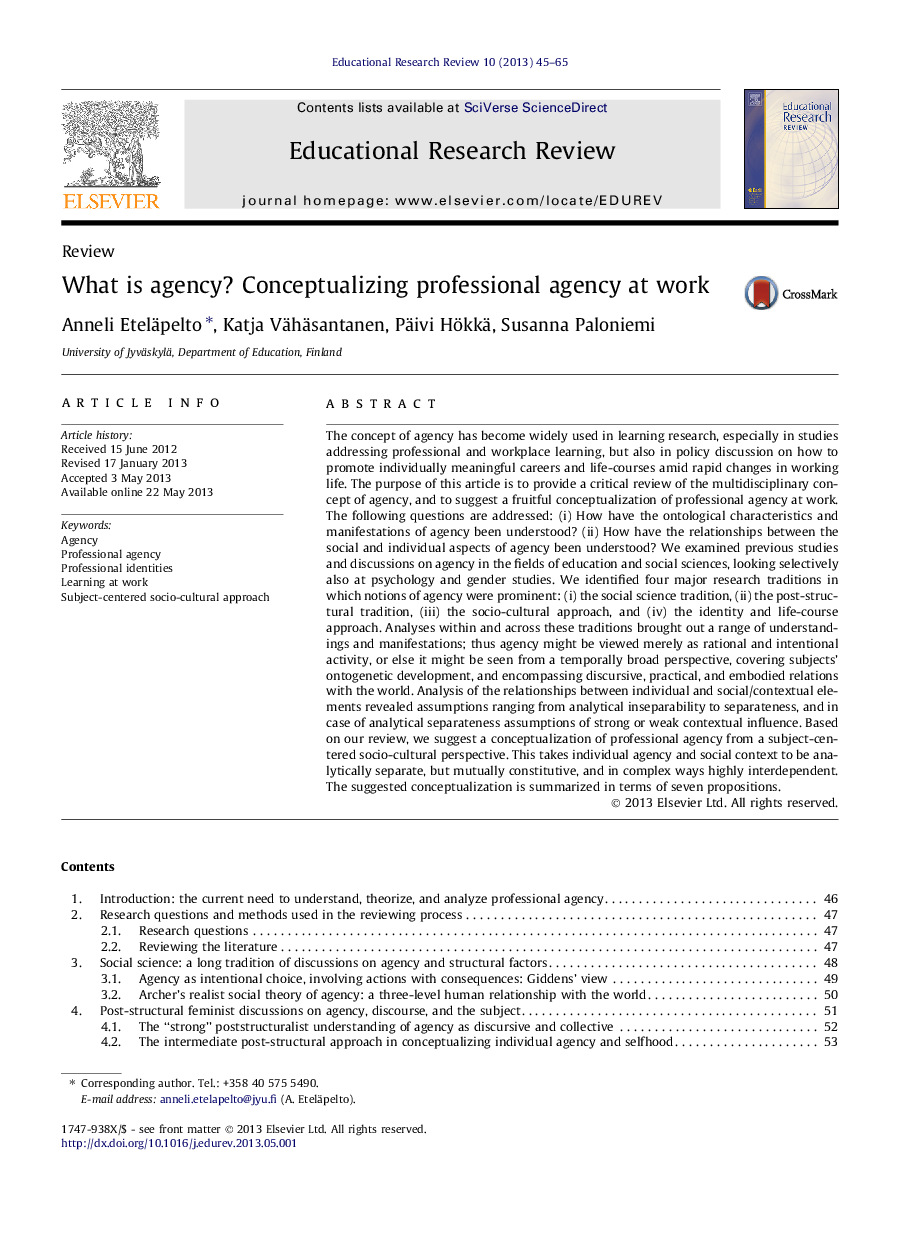| Article ID | Journal | Published Year | Pages | File Type |
|---|---|---|---|---|
| 355157 | Educational Research Review | 2013 | 21 Pages |
•There is a need for a critical discussion of agency in learning research.•The article provides a critical review of recent notions of agency.•A subject-centered socio-cultural perspective is suggested.
The concept of agency has become widely used in learning research, especially in studies addressing professional and workplace learning, but also in policy discussion on how to promote individually meaningful careers and life-courses amid rapid changes in working life. The purpose of this article is to provide a critical review of the multidisciplinary concept of agency, and to suggest a fruitful conceptualization of professional agency at work. The following questions are addressed: (i) How have the ontological characteristics and manifestations of agency been understood? (ii) How have the relationships between the social and individual aspects of agency been understood? We examined previous studies and discussions on agency in the fields of education and social sciences, looking selectively also at psychology and gender studies. We identified four major research traditions in which notions of agency were prominent: (i) the social science tradition, (ii) the post-structural tradition, (iii) the socio-cultural approach, and (iv) the identity and life-course approach. Analyses within and across these traditions brought out a range of understandings and manifestations; thus agency might be viewed merely as rational and intentional activity, or else it might be seen from a temporally broad perspective, covering subjects’ ontogenetic development, and encompassing discursive, practical, and embodied relations with the world. Analysis of the relationships between individual and social/contextual elements revealed assumptions ranging from analytical inseparability to separateness, and in case of analytical separateness assumptions of strong or weak contextual influence. Based on our review, we suggest a conceptualization of professional agency from a subject-centered socio-cultural perspective. This takes individual agency and social context to be analytically separate, but mutually constitutive, and in complex ways highly interdependent. The suggested conceptualization is summarized in terms of seven propositions.
